I'm Megan, a fledgling librarian and lifelong reader. Welcome to my book blog!
Don't wanna be here? Send us removal request.
Text
My hobbies include reading, writing and doing neither of those things
75K notes
·
View notes
Text
ladies we need to start frantically and obsessively reading books in less than 24 hours again..remember how happy we were
253K notes
·
View notes
Text

"By the time Alex managed to get the blood out of her good wool coat, it was too warm to wear it."
123 notes
·
View notes
Text
I think my reading material for the rest of the quarantine will just be whatever odd book my dad hands me. I asked him about historic fabrics as a reference for something I'm trying to write and now suddenly I'm reading an entire book about cowboy fashion from 1870 to 1920. It's actually great and seems to have cured my reading slump.
7 notes
·
View notes
Photo








Part of my growing Celtic library, look at all this treasure. Still waiting on more orders to come through. (Books in other languages not pictured, I have a few of those as well when the English version was unavailable.)
636 notes
·
View notes
Text
“Frodo looked round in horror. Dreadful as the Dead Marshes had been, and the arid moors of the Noman-lands, more loathsome far was the country that the crawling day now slowly unveiled to his shrinking eyes. Even to the Mere of Dead Faces some haggard phantom of green spring would come; but here neither spring nor summer would ever come again. Here nothing lived, not even the leprous growths that feed on rottenness. The gasping pools were choked with ash and crawling muds, sickly white and grey, as if the mountains had vomited the filth of their entrails upon the lands about. High mounds of crushed and powdered rock, great cones of earth fire-blasted and poison-stained, stood like an obscene graveyard in endless rows, slowly revealed in the reluctant light. They had come to the desolation that lay before Mordor: the lasting monument to the dark labour of its slaves that should endure when all their purposes were made void; a land defiled, diseased beyond all healing – unless the Great Sea should enter in and wash it with oblivion.”
—
JRR Tolkien, The Two Towers, Book IV
A little while ago I read in someone’s review of The Two Towers (probably on Goodreads, lbr) that while Tolkien obviously had great skill at describing landscapes - as evidenced in Fellowship of the Ring - that skill apparently failed him in The Two Towers because everything in that book, especially book four, was bleak, brown and boring. I would like to respectfully disagree.
Whether consciously crafted or not, there is a clear contrast between the Shire and the lanscapes touched by the destructive power of Mordor, and that contrast is central to the second (and third) part of The Lord of the Rings. The memory of the Shire, green, flourishing, and peaceful, is what sustains the hobbits - most notably Sam - during their trek through the dead lands, after all. It is a memory that makes passing through death and destruction at all bearable.
And that contrast is no accident; it is just that the landscapes of The Two Towers are informed by a very different kind of experience than those in Fellowship of the Ring. Where Fellowship draws largely on the English countryside and sublime mountain imagery, the above is very obviously inspired by a World War One battlefield. Incidentally, the remainders of those can still be seen in aereal photographs of Verdun a hundred years later.
(via thiswaitingheart)
21 notes
·
View notes
Text

The Snow Walker by Farley Mowat
My inexplicable obsession with the Arctic strikes again. I have a lot of feelings about this book and I’m not sure I know how to articulate them all properly. So here are at least a few of them.
I need to start with my biggest problem with this book, because it’s kind of a doozy and it had a massive impact on how I understood and connected to these stories. There is absolutely no context. For any of it. There is no forward or preface, no afterward or acknowledgements. Nothing. It is just a collection of stories around the themes of life in the Canadian Arctic, first contact, and the ongoing struggle between traditional ways of life and colonization. From reading around a bit online, I have come to understand that this collection of short stories was originally published in 1975 and the copy I received for Christmas is a 2014 reprinting. This at least partially explains the use of racist and offensive language within some of the stories. I definitely would have appreciated some sort of context within the book itself that would have given me more insight into its provenance, its purpose, and how it aligns with the rest of Mowat’s work.
That said, I was still thoroughly engrossed by each of these stories. They read like folklore, oral histories, and old ethnographies of the sort I used to have to read when I was taking courses in the history of anthropology. At times, you could almost forget that it is fiction. More than a few of the stories just punched me right in the heart, and I learned a lot of things I had not known previously. Which from what I gather, is part of the purpose Mowat had in mind when he published this collection. These stories hurt; they made me so angry and so sad. They depict cruelty in a place where kindness is a means of survival; ignorance in times where understanding would have been crucial; arrogance that destroys lives. If you aren’t at least a little bit mad about Christian missionaries, the Hudson’s Bay Company, the RCMP, and the Canadian government before reading this, you sure will be afterwards. I can’t help but think that this was intentional on Mowat’s part. I found myself lulled by the first segment, a sort of poetic reflection on the meaning of snow, which led me to expect some sort of magical arctic journey was to follow. From there, you are catapulted into The Blinding of Andre Maloche, in which a young white man is saved from death (nearly caused by his own arrogance) by an Inuit family who take him in and treat him as one of their own, but brings catastrophe down on them through that same arrogance and ignorance. From there we have stories about an Inuit man who washes up in the Hebrides; Vikings in Northern Canada; an injured man and a woman with TB struggling to survive after their plane crashes; bonds between a man and a fox, a dog and a wolf; stories of famine, sacrifice and survival. And finally, Dark Odyssey of Soosie, which tells a story so similar to actual history, of a group of unfortunate families who are victims first of a company that sees them as a means to power and profit rather than human beings, whose agency and traditional ways of life are stripped from them, who endure one false promise after another, and finally are broken by the imposition of a system of “justice” as decided upon by people in Ottawa who were culpable in the creation of the circumstances that led to their apparent crimes.
If anyone knows of any own voices stories of this type, whether fiction or non-fiction, please send me your recommendations, I’d be very interested to read them.
#books#book review#books I read in 2020#quarantine reading#quarantine#short stories#Farley Mowat#Canada#Canadian literature#Canadian authors#Canadian history#inuit#Inuit history#the arctic#survival stories
3 notes
·
View notes
Text

I’ve finally managed to finish reading Emma Donoghue’s Frog Music, the last book I borrowed before the library shut down. It took a long time for me to work my way through it, not because of any flaw in the book itself, but because it was just sometimes a bit much for the mental space I’ve been in while stuck inside.
I was hoping that this would be a fast paced ride through an Old West type of setting, as Blanche tries to stay one step ahead of a killer and find justice for her friend. It’s not quite that. Instead it’s an incredibly detailed portrait of San Francisco as an overly crowded, cobbled together city, where citizens live practically on top of each other in grime and squalor, but use the anonymity of the city to reinvent themselves, to live their lives in ways that would be impossible anywhere else. Meanwhile, the city is being slowly suffocated under an unrelenting heatwave and a smallpox epidemic. The details about smallpox, and the way people were handling the epidemic, was among the reasons I found this a bit much to read right now.
The timeline jumps back and forth; beginning at the moment of the shooting and then skipping backwards and forwards in time to explain how Blanche met and befriended Jenny Bonnet, at the same time that we see Blanche struggling to do justice for her friend and do what’s right for her son. While Jenny is charming and likable from the beginning, Blanche comes across as unpleasant in the beginning and becomes more sympathetic as the story goes on. Arthur and Ernest on the other hand, enter the scene as a lazy, vain, but seemingly harmless pair, so much so that you wonder how Blanche could suspect Arthur of being the killer, and then become increasingly despicable as you learn more about them and the narrative surrounding the shooting unravels.
As for the mystery elements of the story, that comes across as slightly underplayed compared to Blanche’s struggle to survive and save her son. It felt to me that Blanche stumbled upon the truth of the crime not so much through investigation as by accident.
I want to recommend this book to anyone who loves vividly written historical fiction and particularly historical fiction written about real people and events. Especially since in this case, it’s a novel about people who have been ignored by traditional historical narratives. If you’re interested in the history of music or dance, this might also hold a special interest for you. That said, please be aware that this book contains graphic descriptions of severe illness and injury, violence, child abuse and neglect, sex, and sexual assault, as well as some pretty severe racist, sexist and homophobic language
#frog music#emma donoghue#books#book review#historical fiction#books I read in 2020#quarantine reading#history
3 notes
·
View notes
Text
Console-free Camping
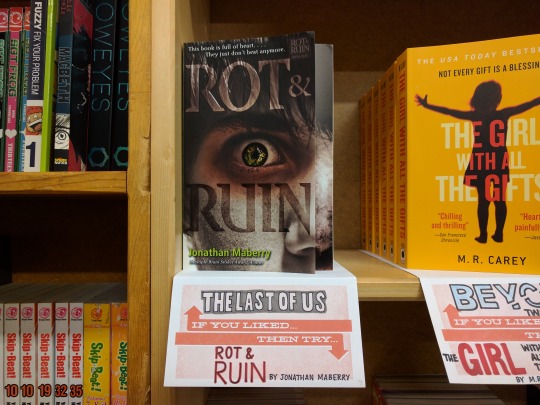
If you like to play The Last of Us, then try Rot & Ruin by Jonathan Maberry
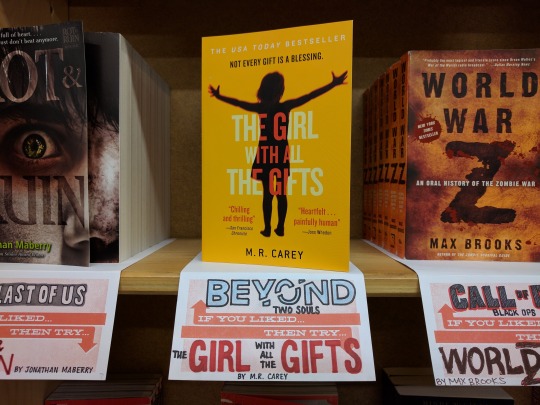
If you like to play Beyond: Two Souls, then try The Girl With All the Gifts by M.R. Carey

If you like to play Call of Duty: Black Ops (Zombies), then try World War Z by Max Brooks

If you like playing Grand Theft Auto, then try American Psycho by Bret Easton Ellis
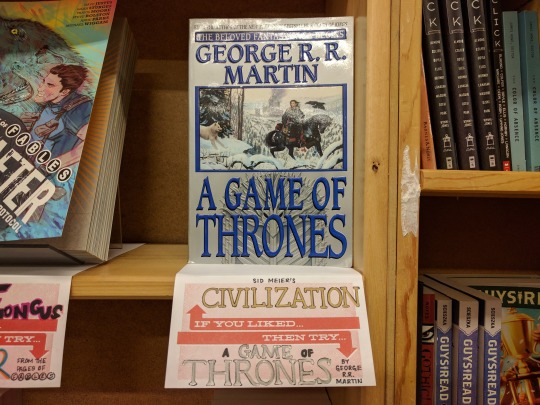
If you like playing Sid Meier’s Civilization, then try A Game Of Thrones by George R. R. Martin
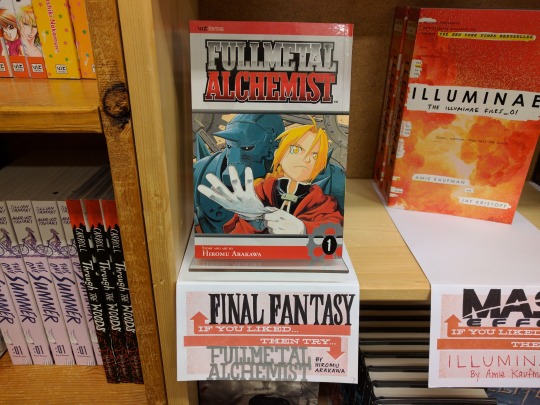
If you like playing Final Fantasy, try playing Fullmetal Alchemist by Hiromu Arakawa
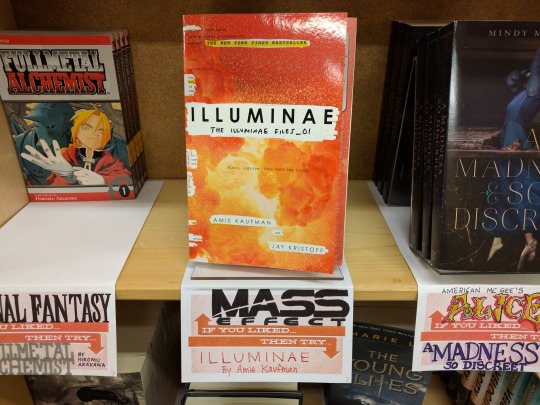
If you like playing Mass Effect, then try Illuminae by Amie Kaufman and Jay Kristoff
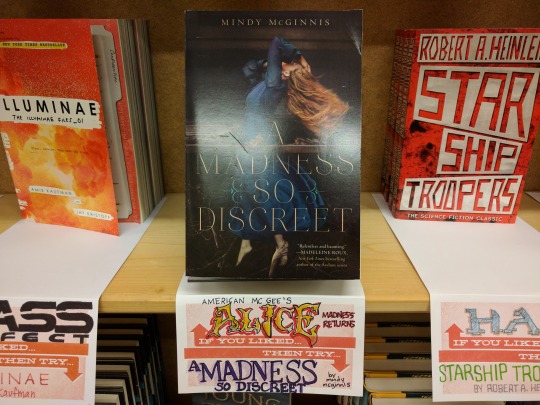
If you like playing Alice: Madness Returns, then try Madness So Discreet by Mindy McGinnis

If you like playing Halo, then try Starship Troopers by Robert A Heinlein

If you like playing Portal, then try House Of Stairs by William Sleator
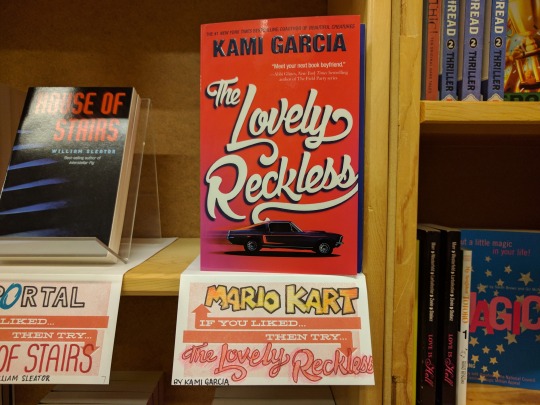
If you like playing Mario Kart, then try The Lovely Reckless by Kami Garcia
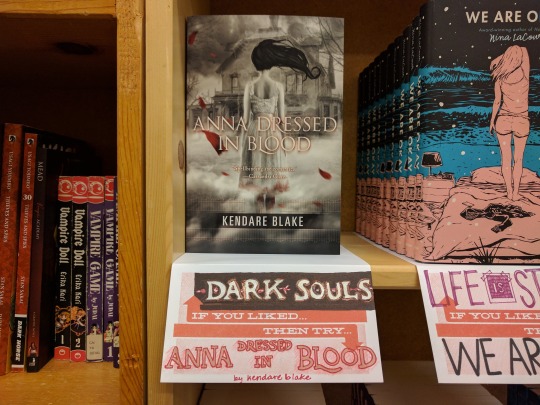
If you like playing Dark Souls, then try Anna Dressed in Blood by Kendare Blake

If you like playing Life Is Strange, then try We Are Okay by Nina Lacour

If you like playing Stardew Valley, then try How I Live Now by Meg Rosoff
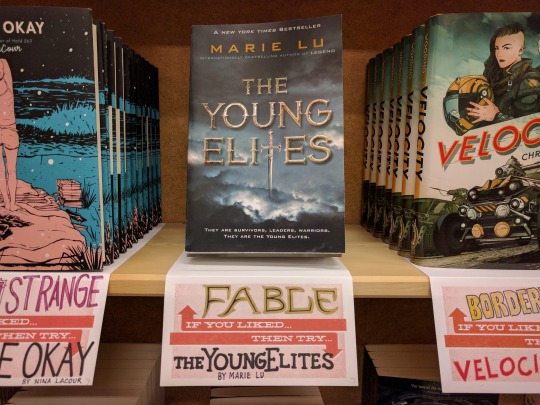
If you like playing Fable, then try Young Elites by Marie Lu

If you like playing Borderlands, then try Velocity by Chris Wooding
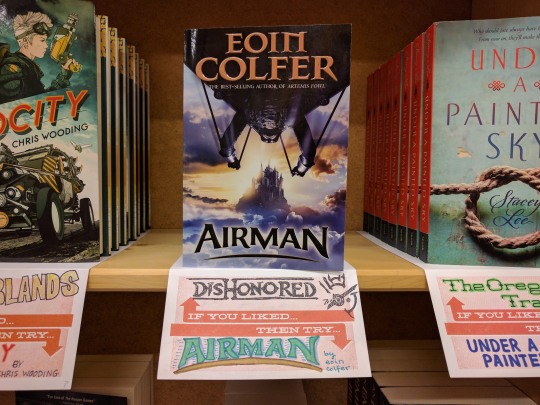
If you like playing Dishonored, then try Airman by Eoin Colfer

If you like playing The Oregon Trail, then try Under a Painted Sky by Stacey Lee
If you like playing the Elder Scrolls series, then try The Naming by Alison Croggon
If you like playing Red Dead Redemption, then try Vengeance Road by Erin Bowman

If you like playing Bioshock, then try Dark Life by Kat Falls
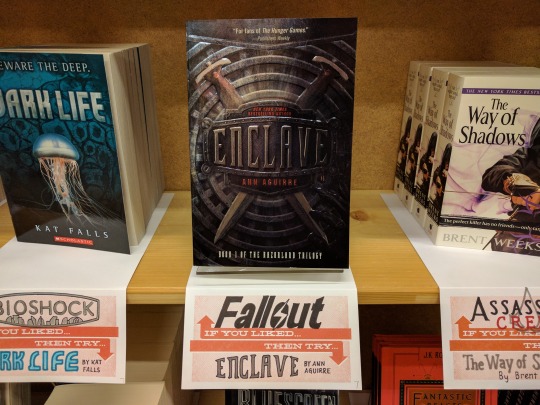
If you like playing Fallout, then try Razorland by Ann Aguirre
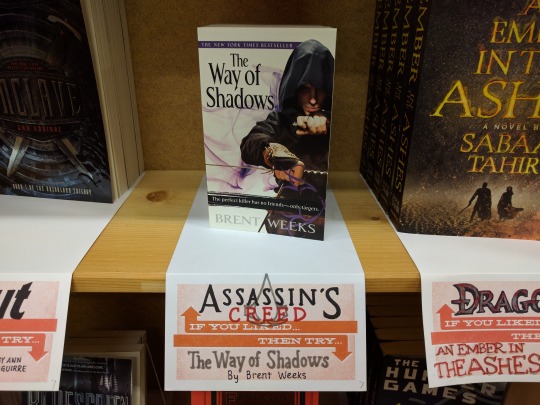
If you like playing Assasin’s Creed, then try The Way of Shadows Night by Brent Weeks

If you like playing Dragonage, then try Ember in the Ashes by Sabaa Tahir
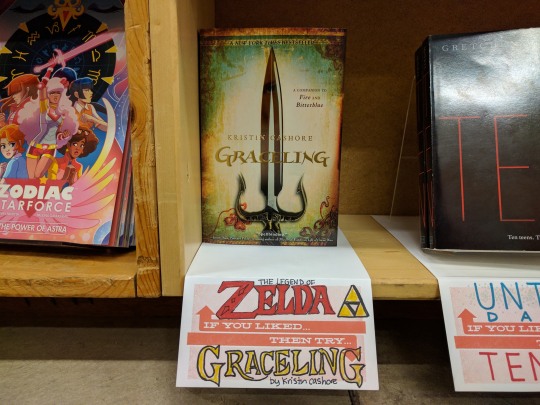
If you like playing The Legend of Zelda, then try Graceling by Kristin Cashore
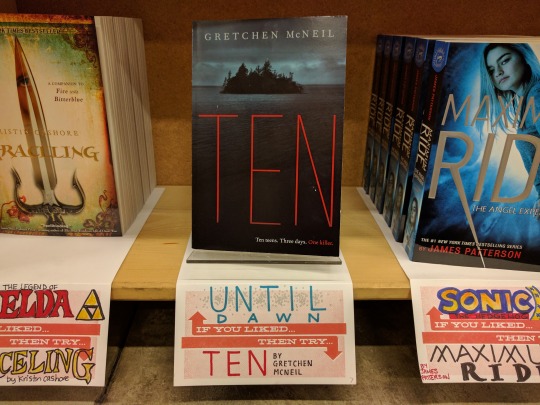
If you like playing Until Dawn, then try Ten by Gretchen McNeil
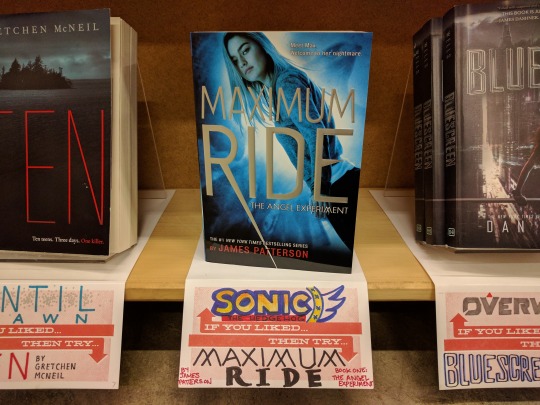
If you like playing Sonic, then try Maximum Ride by James Patterson

If you like playing Overwatch, then try Bluescreen by Dan Wells

If you like playing Uncharted, then try Passenger by Alexandra Bracken
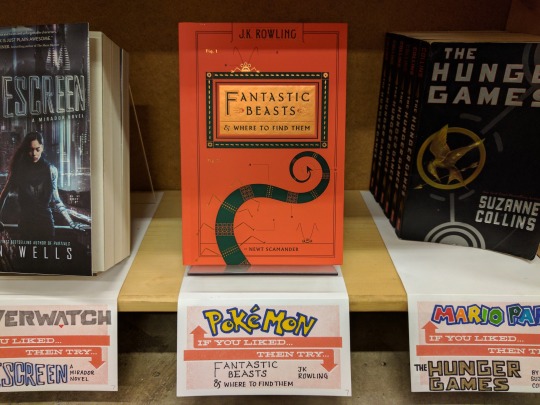
If you like playing Pokemon, then try Fantastic Beasts & Where to Find Them by JK Rowling, and Newt Scamander
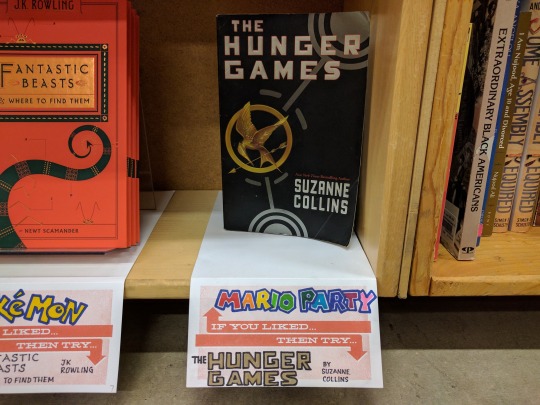
If you like playing Mario Party, then try Hunger Games by Suzanne Collins
188K notes
·
View notes
Text
How to Read for Pleasure (when it feels like the world is on fire)
You’ve heard the jokes: sure, society is collapsing, but at least I’ll catch up on my reading! I don’t know if I have enough toilet paper, but my book hoarding is gonna get me through this!
But as the days of self-quarantine, self-isolation, and social distancing wear on, I’ve been hearing from my bibliophile friends that they aren’t reading much at all. They’re distractible. They’re persnickety. They can’t commit to a book.
Just like me.
When my friends confide their lack of progress on the TBR pile, they often speak with a faint tone of betrayal. Reading is their escape. Reading is their connection. It got them through illness, trauma, loneliness, middle school. And now, when we all need comfort, or armchair voyaging, or a sense of perspective, or a line to the outside world, why are books letting us down?
The drive to be doing something is powerful and, for most of us, painfully unavailing when the best way you can help is literally stay put. We need our coping methods and our escapism. So I wanted to share a few tips I’ve found helpful for allowing my brain to unclench enough to enjoy reading again.
Give yourself some mental space for reading. When I try to flip directly from reading the news or checking on social media to diving into a novel, it just doesn’t work. But I’ve found that if I go from reading the news to writing in my journal, putting on a sitcom, or phoning someone I like, then I may feel like picking up a book.
Give yourself a physical space for reading. It can be a room. It can be a chair. it can be your bed. You’re stuck in a shoebox and the bed is all you have? Okay, when you lie down with your head in this direction, you’re not checking your phone.
Read what you want. I know a lot of people in book world are saying well hey, at least I can catch up on my slush pile/tbr/a-million-book-related-commitments. Screw that. If you’re working from home, or even if you’re not able to officially work from home but want to keep up with work-related reading, do it during pre-determined working hours. Pick something engrossing, or fluffy, or nostalgic. Listen to your cravings! Grabby hands! Whatever works!
Read what you want, not what you think you should want. I’ve talked to several people who really just want to read books about the Black Death, or the Spanish Flu, or the end of the world, but feel weird about admitting it. Others feel like they should be reading something substantial about humanity and society in trying times, but only want to read fluffy rom coms or that fantasy doorstopper they loved when they were twelve. Read what you want!
Try a different format. Shake things up. If you don’t usually read ebooks, now is a great time to try them, with lots of services offering free downloads and libraries that are physically closed reaching out digitally. If you don’t usually read paper, the different sensory experience might be just what you need. Audiobooks are great for compulsively cleaning the kitchen, sewing masks, or otherwise keeping your hands busy.
Talk about what you’re reading. Call someone up and ask what they’re reading. Read something you’re not sure you’ll like and rant about it. Ask for book recommendations. Ask for book recommendations from someone who doesn’t share your taste. Have an argument. Check in on people, and talk about something else.
Don’t read. Don’t pressure yourself. It’s really fine. Do something with your hands. Make a snack. Binge watch TV. Take a depression nap. Go for a socially distanced walk. Go for a socially distanced run. Rant about your boss, or sudden lack of boss. Make a fancy drink or dessert and gobble it down at a socially unacceptable time of day. Write a nice note for your mail carrier/grocery check out clerk/closest hospital. Accept that normal coping methods aren’t always effective in abnormal times.
Your pile of books will wait for you.
265 notes
·
View notes
Text
When I started my new job in the winter, I inherited my predecessor’s book club and our March Title was Calling Me Home by Julie Kibler. I didn’t finish it on time for the meeting, and now, nearly two weeks after the meeting, I’m still struggling to pass the half way point. I’m giving myself permission to DNF (learning to do this has made branching out in my reading so much easier, by the way). I can tell it’s beautifully written and most of the ladies in the book club raved about it, but I just can’t get into it. Partly because from the beginning you can tell that the trajectory of the story is heading for heartbreak and partly because I’m just not in the mood to read something so heavy and serious. So. . .on to the next one.
#dnf#books#calling me home#romance#historical fiction#being stuck at home has made me way too restless for this
1 note
·
View note
Photo

The Way of Kings- Excerpt Illustration by BeaGifted
#stormlight archive#stormlight#jasnah kholin#shallan davar#reblog#art reblog#the way of kings#brandon sanderson
574 notes
·
View notes
Text
This bit in Silver on the Tree where the Dark had destroyed the power of a talented artist by cursing him with a depression that caused him to doubt all his own abilities, hide his best works, and lose his will to go on creating . . . well, that definitely hit me where it hurts.
#books#books i read in 2020#reading#susan cooper#the dark is rising#silver on the tree#nostalgia reading list
15 notes
·
View notes
Text
Absolutely all of my spare reading time has been consumed by the insane urge to WRITE
3 notes
·
View notes
Text
Just Some Thoughts on The Grey King
This whole series has a really strong sense of place and villages like Will’s home town and Trewissick are almost alive as characters in the previous novels, but I feel like Susan Cooper really outdid herself in conjuring up this beautiful, yet sinister Welsh valley.
Guinevere and Merlin time traveling to protect Arthur’s legacy is now one of my favourite modern fantasy takes on Arthurian legend.
I also really enjoyed the riddles borrowed out of the Trioedd Ynys Prydein
In previous novels, the Dark is an abstract, but menacing entity with easily identifiable human agents. This is the first novel where the Dark feels like something truly threatening with real power to influence everyday people and cause them lasting harm.
Proceed with extreme caution if you are sensitive about books in which Very Bad Things happen to Very Good Dogs.
#reread#the grey king#susan cooper#the dark is rising#nostalgia reading list#books#book review#still crying about Cafall
30 notes
·
View notes



